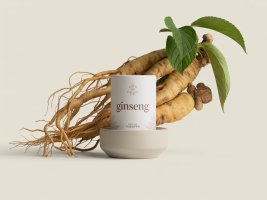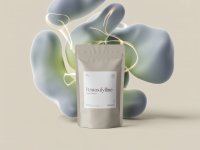
ginseng
Ginseng is a root from the Panax genus, native to regions like Korea, China, and North America, and has been a cornerstone of traditional medicine for thousands of years. It works through active compounds called ginsenosides, which interact with various systems in the body and brain, and is most known for potentially enhancing cognitive function and providing antioxidant effects. Studies, including meta-analyses, show significant improvements in memory, particularly working memory, although effects on overall cognition, attention, or executive function are less consistent.
Table of Contents
Categories & Effectiveness
Brain Health
Brain Antioxidant Shield
7/10Strong evidence of effectiveness
Neuro-Repair Support
7/10Strong evidence of effectiveness
Neurogenesis (BDNF/NGF)
7/10Strong evidence of effectiveness
Serotonin Support
7/10Strong evidence of effectiveness
Cognition
Memory & Recall
7/10Strong evidence of effectiveness
Mood & Stress
Cortisol Regulation
4/10Moderate evidence of effectiveness
Mood Elevation
4/10Moderate evidence of effectiveness
Stress Resilience
4/10Moderate evidence of effectiveness
Systemic Health
Anti-Inflammatory (Systemic)
7/10Strong evidence of effectiveness
Blood Pressure Regulation
7/10Strong evidence of effectiveness
Systemic Antioxidant
7/10Strong evidence of effectiveness
Vascular Health
7/10Strong evidence of effectiveness
Dosage & Side Effects
Recommended Dosage
Potential Side Effects
Interactions & Stacks
Benefits by Use Case
Working Memory Boost
Studies show American ginseng extract (100-400mg) significantly improves working memory tasks like Corsi blocks and numeric/alphabetic recall within hours of taking it. Effects appear sustained for at least 6 hours post-dose.
Memory Recall Enhancement
Panax ginseng powder (3g daily for 6 months) improved immediate and delayed recall in individuals with mild cognitive impairment. Meta-analyses confirm a significant positive effect on memory, especially at higher doses.
Increased Calmness
A 100mg dose of American ginseng extract demonstrated increased self-rated calmness at 3 and 6 hours post-administration in healthy young adults. This suggests potential mild mood-modulating effects, though evidence for significant anxiety reduction is limited.
Antioxidant Support
Ginsenosides possess antioxidant properties, potentially protecting cells (including brain and heart cells) from oxidative damage by scavenging free radicals and boosting antioxidant enzyme levels. This contributes to its neuroprotective and cardioprotective effects.
Cardiovascular Health Support
Research reviews suggest Ginseng and ginsenosides may benefit cardiovascular health through mechanisms like vasodilation (improving blood flow), blood pressure regulation, lipid profile improvement, and anti-platelet activity. More clinical verification is needed for definitive claims.




